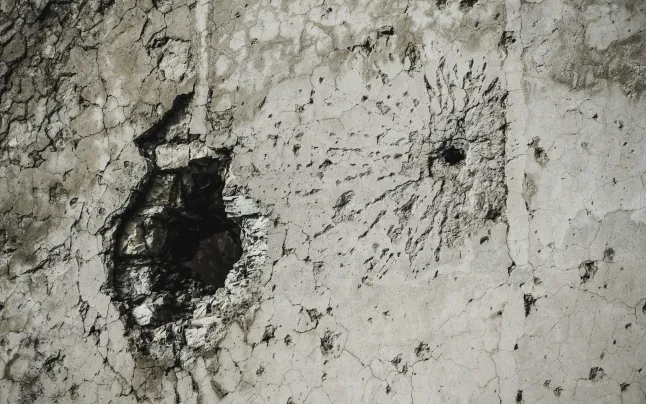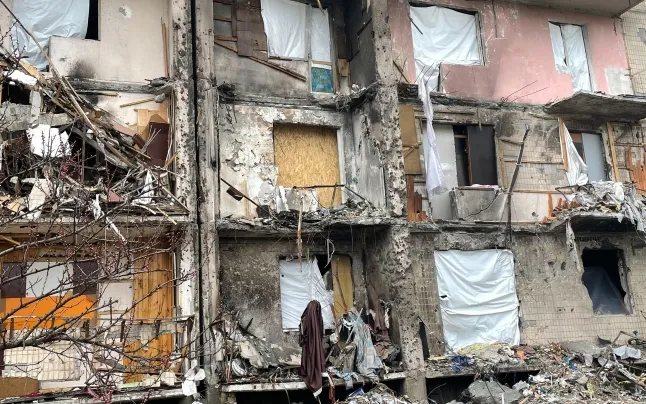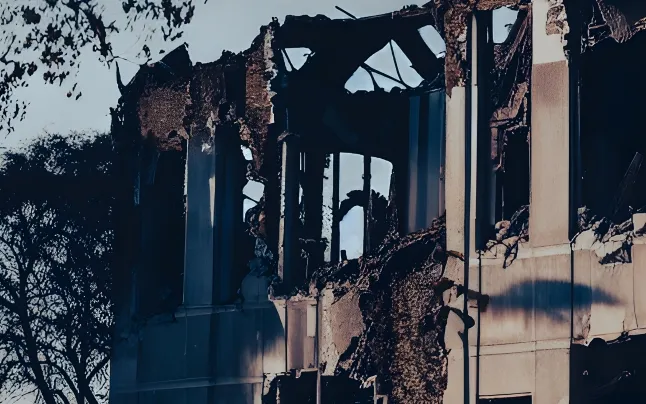The report 'Alert 2023!', published annually by the Escola de Cultura de Pau, enumerate thirty-three armed conflicts on a global scale and warns of an escalation of socio-political tension on the world stage.
As every year, the Escola de Cultura de Pau (ECP) has scanned the state of the world in terms of conflict and peace building in its report 'Alert 2023!'. The research center for peace at the Universitat Autònoma de Barcelona (UAB) draws up this analysis based on three axes: armed conflicts, tensions and gender, and peace and security.
The yearbook reviews the most relevant events of the year in terms of armed conflicts and scenarios of socio-political tension to offer a regional comparative view of the world situation and identify global trends and risk contexts for the future. At the same time, the report also addresses opportunities for peace building and conflict resolution.
The conclusions of the ECP analysis make it clear that conflict and socio-political tension increased last year, but new opportunities for peace have also opened up on the global board. 'Alert 2023!' puts the number of armed conflicts underway in 2022 at thirty-three, one more than the previous year. The organization places the new confrontation in the Ethiopian region of Oromia, where violence has escalated exponentially.
Almost half of the thirty-three reported armed conflicts (sixteen) are located in Africa, by far the most turbulent region in the world. Asia, with nine, and the Middle East, with five, are also hot spots of the planet.
The study concludes that the Russian invasion of Ukraine, one of the two active conflicts in Europe (the other is located in southeastern Turkey), has led "to an increase in the typology of international conflicts, despite the fact that the disputes between states remain in the minority. Regarding the intensity of the conflicts, the report considers that seventeen of the thirty-three are of high intensity, twelve of them take place in Africa. In addition, almost 70% of all armed confrontations on the planet have broken out in countries where there are low levels of gender equality.
Next, we turn the focus to five risk scenarios identified in the report that could worsen and generate greater instability and violence.
- Sudan and South Sudan
Both African states are facing crises in their transition processes, with power struggles unleashed between their main leaders, difficulties in building a unified army and problems in articulating a process of returning power to citizens.
The crisis that broke out in Sudan in April of this year, which resulted in clashes between the army and the paramilitaries, puts the fragile transition in the country at risk, may increase the serious humanitarian crisis suffered by the population and may cause a contagion effect in the surrounding countries, which live in permanent instability, especially South Sudan.
- Democratic Republic of the Congo and Rwanda
We don't leave the African continent to talk about the escalation of tension experienced by the relationship between the Democratic Republic of the Congo (DRC) and Rwanda, following the clashes - at the moment, of a sporadic nature - that have taken place between security forces in the border area between the two countries.
One of the causes of these disagreements has been the accusations of military and logistical support by Rwanda towards the armed group M23 in the Congolese province of North Kivu, in the east of the country.
Despite the fact that diplomatic initiatives have been launched to lower the tension, they have all failed. In this sense, the report expresses that to promote the resolution of the dispute "a deeper analysis is essential to understand the local, regional and international dynamics that are at the origin of this conflict".
- The Korean Peninsula
Political and military tension in this area of Asia has increased considerably since 2022, after a period in which dialogue and rapprochement between North and South Korea were encouraged.
This rise in tensions between the two Koreas has resulted in an increase in military activities, war episodes on the land and sea border, as well as an increase in the launch of missiles by the Pyongyang regime.
The resumption of North Korea's nuclear program and the manufacture of new weapons, in turn, has increased the tension between the country led by Kim Jong-un and Japan, while it has led to a strengthening of cooperation on nuclear matters between the United States (USA) and South Korea.
- Moldavia
The country has seen how multidimensional and intersecting tensions have flared as a result of the influence brought about by the Russian invasion of Ukraine, which has convulsed the entire area of the eastern part of the European continent.
This revival of tension, according to the ECP yearbook, has been reflected in more uncertainty, in allegations of plans to perpetrate covert coups d'état, a risk of more polarization with territorial expression and a deepening of the socio-economic crisis that the Eastern European country suffers from.
In this way, Moldova foresees in the short and medium term a risk of increased and chronification of intersecting tensions, which call for a strengthening of international support in areas that help prevent the extension of the conflict affecting Ukraine, that contribute to the cohesion and the consolidation of democracy and human security.
- Iran and Afghanistan
One cannot talk about these two countries in Asia without warning about the aggravation of discriminatory policies against women, but also without mentioning the protests and resistance, led by the women themselves, which has motivated this systematic persecution by part of the fundamentalist regimes of the Ayatollahs and the Taliban, of Iran and Afghanistan respectively.
This attempt to control the lives and bodies of women, which cannot be described in any other way than extreme, systematic and structural discrimination, has articulated a proposal to recognize the situation as an Apartheid crime of genre. In fact, all of this has put the two countries in the media spotlight over the past year, in large part because of the courageous reaction of the women.
However, 'Alert 2023!' emphasizes that it is likely that these discriminations will persist, despite the international reaction, which is more noisy than effective, all told. Thus, the yearbook warns of the risk that "the situation of women worsens and worsens, that media attention goes down and that some agents of the international community opt for a utilitarian approach to the defense of women's rights , which promotes or ignores them based on conjunctural interests".









Add new comment